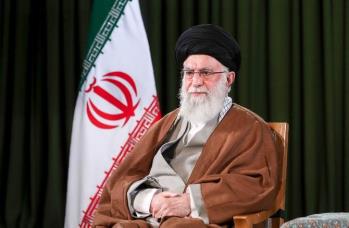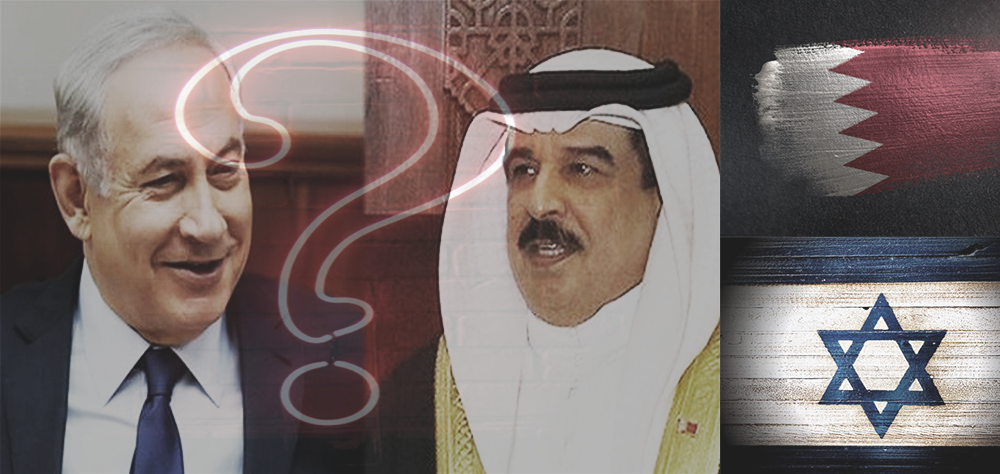Alwaght- The UAE's action in recognizing the existence of the Zionist regime, despite all the different oppositions and reactions it had in the Arab world, had a hasty reaction from the leaders of the Kingdom of Bahrain.
In this regard, following the UAE, Bahrain monarchy's leaders announced they would soon recognize Tel Aviv officially.
But the optimism of Bahrainis for a normalization of relations with the Zionist regime will not be achieved as easy as thought.
Bahrain and UAE Differences
Although the UAE has announced that it will normalize relations with the Zionists, Bahrain's conditions for normalizing political relations with Tel Aviv are very different.
In the fight against current changes, the UAE is a country without a dynamic political party and society, and its authoritarian and tightly closed governance poses less of a challenge to normalize relations with the Zionist regime.
As a matter of fact, in the UAE, due to the presence of the strong economic sector and the presence of Western companies and agencies, political issues have been pushed to the margins, and as a result public opinion pay less attention to political developments.
On the other hand, due to the absence of civil society in the UAE, under the strict authoritarian rule of the Al Nahyan family, any political opposition is to be suppressed and severely crushed in the early stages.
Therefore, in the UAE, the possibility of expressing opposition even in the informal and underground approach against the actions of the ruling Sheikhs is hardly possible and in fact improbable.
According to such facts, Abu Dhabi and Dubai Sheikhs faced less challenges in publicly declaring relations with the Zionist regime.
Al Khalifa's difficult path in normalizing relations with Tel Aviv
In Bahrain, unlike its neighbor the UAE, we are witnessing a fragmented society of political parties and groups that, although operating informally, have a long history of extensive political and social activity within the country.
In Bahrain, as in the UAE, the political atmosphere is tightly controlled, however, civil and political parties and groups in the country continue to play a role in the country's social and political developments and changes.
In addition to political parties with religious leanings, such as Al-Wefaq, there are other parties with secular pan-Arab leanings active in Bahrain that strongly reject the occupation of Palestine and the existence of the Zionists.
Bahrain's protest movement and revolution in 2011 itself is the biggest compelling reason associated with the minima of the heavily suppressed civil society activity in the country.
On the other hand, the long list of political prisoners in Bahrain, shows the high level of political and anti-government reactions in this sheikhdom island of the Persian Gulf.
Thus, Bahrain will face two main obstacles if it wants to follow the path of the UAE in recognizing the Zionist regime:
Firstly, the relatively large population of Bahraini Shiites, who strongly deny any existence or compromise with the Zionist regime and have well-known political parties and groups such as Al-Wefaq, and secondly, the secular population and political groups, whom largely reject pan-Arabism, the occupation of Palestine, and the normalization of relations with Tel Aviv due to their ethnic and Arab tendencies.
The ambiguity of the Arabs
On the other hand, although the UAE has announced normalization of its relations with the Zionist regime, it is skeptical for other Arab countries to go along this path.
The UAE claims that normalization of relations with the Zionists has been considered in exchange for the cancellation of claims by Tel Aviv leaders over the lands of the Palestinian West Bank territories. But on the other hand, the Zionist leaders deny such an issue and continue to emphasize that the issue of annexing parts of the West Bank to other regions is still on the table.
This state of ambiguity has led other Arab countries, including Saudi Arabia and Bahrain, to pursue the issue of normalizing relations with Tel Aviv with more conservatism. Perhaps normalization of relations between the two countries with the Zionists will take place in the long run in the future.



























